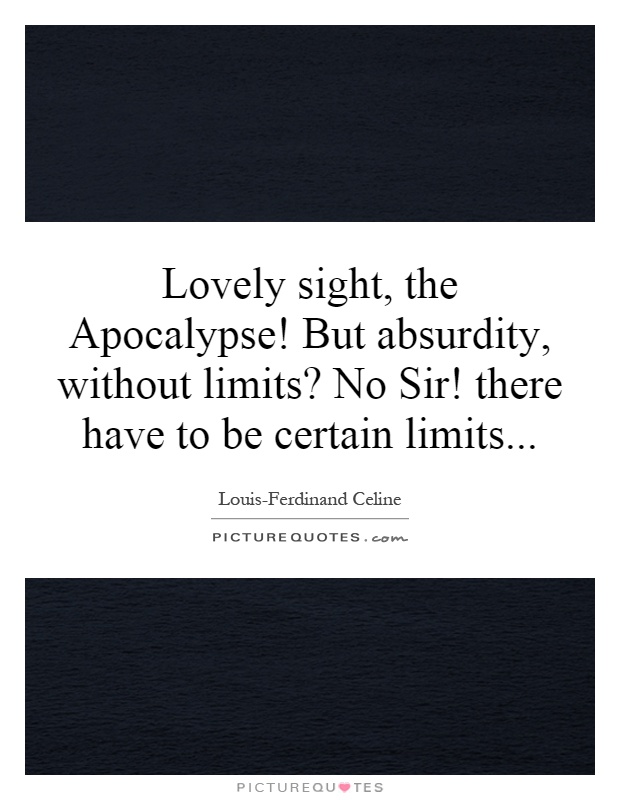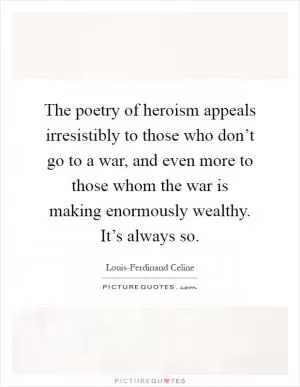Lovely sight, the Apocalypse! But absurdity, without limits? No Sir! there have to be certain limits

Lovely sight, the Apocalypse! But absurdity, without limits? No Sir! there have to be certain limits
Louis-Ferdinand Celine, a French writer known for his controversial and provocative works, often explored themes of absurdity, despair, and the darker aspects of human nature. In his novel "Journey to the End of the Night," Celine delves into the chaos and destruction of World War I, portraying a world on the brink of collapse. His writing is characterized by a raw and unflinching portrayal of the human condition, often pushing the boundaries of what is considered acceptable in literature.The quote "Lovely sight, the Apocalypse! But absurdity, without limits? No Sir! there have to be certain limits" encapsulates Celine's view on the absurdity of the world and the need for some semblance of order or boundaries, even in the face of chaos and destruction. Celine's writing is filled with a sense of nihilism and despair, but also a recognition of the need for some form of structure or limits to prevent complete anarchy.
Celine's work has been both praised and criticized for its bleak and uncompromising portrayal of the human experience. His use of language is often coarse and vulgar, reflecting the harsh realities of life that he sought to expose. Celine's writing style is marked by a sense of urgency and intensity, as if he is trying to shake his readers out of their complacency and force them to confront the harsh truths of the world.












 Friendship Quotes
Friendship Quotes Love Quotes
Love Quotes Life Quotes
Life Quotes Funny Quotes
Funny Quotes Motivational Quotes
Motivational Quotes Inspirational Quotes
Inspirational Quotes